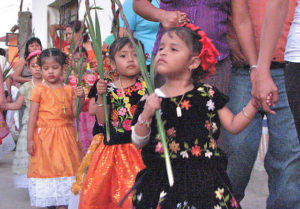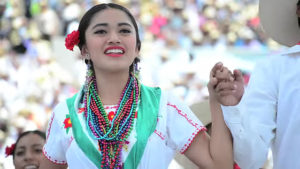Jeffrey Cohen, an anthropology professor at the Ohio State University, updated in a published article on February 12 an earlier blog post describing the ways the Zapotec have been coping with the pandemic. That post was summarized here on August 21, 2020. His update further amplifies his observations of last year.

Cohen observes that when he and his co-author of a recent journal article were doing their original research during the early stage of the pandemic, the small size of the indigenous communities and their relative isolation had kept them away from the spread of the virus. Two-thirds of the 500 communities in Oaxaca had not had any cases of COVID-19. Even now, about one-third of the villages have still not reported any cases.
As cases of the virus have slowly seeped into some of their villages, the Zapotec have devised ways of coping. One of their strategies is physical isolation: they erect blockades on roads leading into their villages to keep out visitors—potential carriers of the virus. Also, the leaders of the communities promote safe practices. “The village leaders are generally respected by the people and they are listened to when they promote health measures like wearing a mask and social distancing,” Cohen said.
Another measure the Zapotec are using to slow the spread of the virus is eating less commercially-produced foods. Instead of buying meats from the markets, many are harvesting wild grasshoppers, “chapulines,” and toasting them over fires to eat as their ancestors did. In that spirit, they are also gathering and consuming wild honey.

Cohen argues that probably the most important strategy used by the Zapotec communities to cope with the threat of the pandemic is to follow their tradition of reciprocity. The practice of guelaguetza, as they call it, is more than just helping out neighbors when they need assistance. When someone gets sick, from the COVID-19 virus or anything else, the neighbors will take care of everything. They will care for crops, share water and food, and do whatever is needed. People are never left to care for themselves.
The scholar concludes his paper by arguing that the most important service the Zapotec communities could get from the normally unresponsive government agencies would be access to clean, safe drinking water. Their use of polluted water increases the incidence of debilitating illnesses such as cholera, which magnify the effects of the COVID-19 virus.